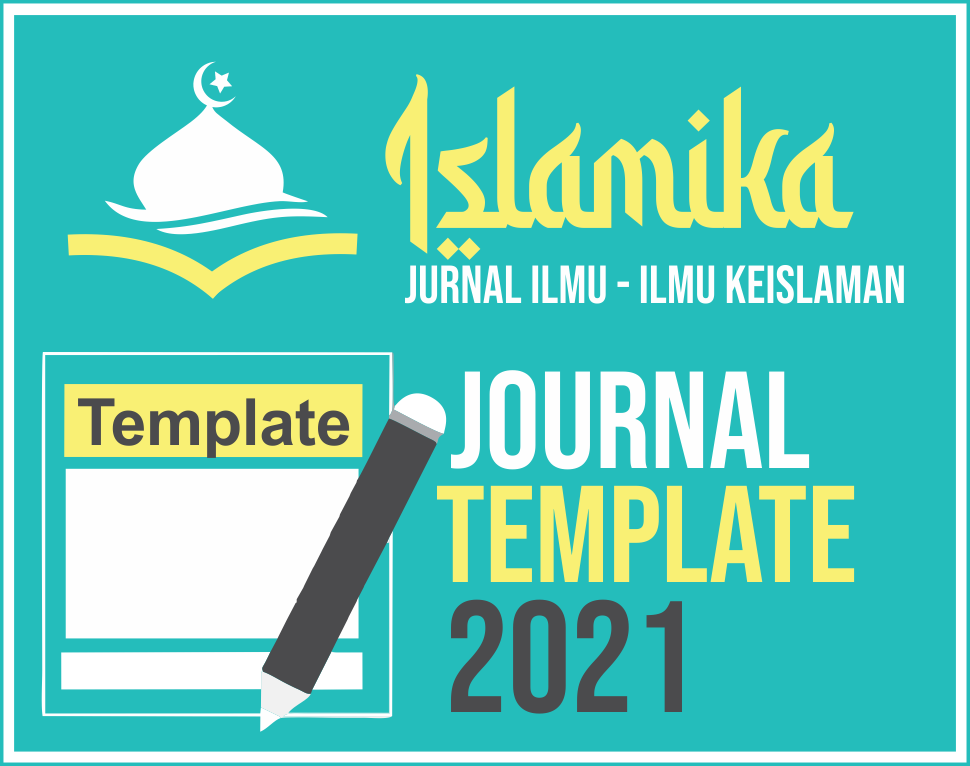Kritik Terhadap Metode Konseling Motivational Interviewing
DOI:
https://doi.org/10.32939/islamika.v22i01.1095Abstract
The development of counseling theory can be seen from the findings made by researchers who I am to be able to solve human problems in accordance with the times. Ranging from classical to contemporary theory continues to add to the list of discoveries made by thinkers in the field of counseling. Criticisms and inputs made by current researchers on the theories of previous scientists are a scientific activity that has a positive impact on the development of science. This study aims to develop a contemporary counseling method, namely Motivational Interviewing from William R. Miller. This research method uses a literature review by reviewing various literatures including literature found in libraries, google books, and google scholar. So that the motivational counseling interviewing counseling method can be developed and relate it to the Islamic approach with the concept of the piety model from Syafiq Falah Alwaney’s theory then an effort and tawakkal approach is added to perfect the concept of developing this counseling method. We hope that by developing a contemporary counseling method from the West, namely Motivational Interviewing using the Islamic approach, the Takwa, Ikhtiar, and Tawakkal model or abbreviated as MIMTIT can be applied by counselors in the counseling process so that the counselee is able to make efforts to change with the motivation that has been found in him, then put his trust in Allah SWT. to the provisions that will occur during the transformation of the changes made.
Downloads
References
Ahmad., P., H., M., Nawi., N., H., Md, A. A. A. A. (2019). Strategi Adaptasi Motivational Interviewing (AMI): Aspek Keyakinan, Empati Dan Perubahan Tingkah Laku Dan Kesannya Terhadap Latihan Kaunseling Penyalahgunaan Dadah (Adaptation Motivational Interviewing (AMI) Strategy: Confidence, Empahty and Behavioral Ch. Jurnal Psikologi Malaysia, 33(1), 34–47.
Apriani, B. N., Hadi, I., Warongan, A. W., & Supriyatna, N. (2018). Efektivitas Konseling dengan Pendekatan Motivational Interviewing Terhadap Penurunan Depresi pada Pasien Post Stroke Depression. Holistic Nursing and Health Science, 1(2), 55–67. https://doi.org/10.14710/hnhs.1.2.2018.55-67
Basuni, A, D. (2021). Psikopedagogik Islam Dimensi Baru Teori Pendidikan. Deepublish.
Bell, D, L., dan Roomaney, R. (2020). Exploring Barries That Prevent Practitioners From Implementing Motivational Interviewing In Their Work With Clients. Social Work/Maatskaplike, 56(4), 416–429. https://doi.org/http://dx.doi.org/10.15270/56-4-884
Burke, B. L., Arkowitz, H., & Menchola, M. (2003). The Efficacy of Motivational Interviewing: A Meta-Analysis of Controlled Clinical Trials. Journal of Consulting and Clinical Psychology, 71(5), 843–861. https://doi.org/https://psycnet.apa.org/doi/10.1037/0022-006X.71.5.843
Habsy, B., A. (2021). Panorama Teori-Teori Konseling Modern dan Post Modern (Refleksi Keindahan dalam Konseling). Media Nusa Creative.
Harijanto, W., Rudijanto, A., & Alamsyah, N, A. (2015). Pengaruh Konseling Motivational Interviewing terhadap Kepatuhan Minum Obat Penderita Hipertensi Effect of Motivational Interviewing Counseling on Hypertension Patients’s Adherence of Taking Medicine. Jurnal Kedokteran Brawijaya, 28(4), 345–353.
Hardcastle, S.J., Taylor, A, H., Bailey, M, P., & Hagger, M, S, (2013). Effectiveness Of a Motivational Interviewing Intervention on Weight Loss, Physical Activity and Cardiovascular Disease Risk Factors: A Randomised Controlled Trial With a 12-Month Post-Intervention Follow-Up. International Journal of Behavioral Nutrition and Physical Activity, 10(40), 1–17. http://www.ijbnpa.org/content/10/1/40%5Cnhttp://ovidsp.ovid.com/ovidweb.cgi?T=JS&PAGE=reference&D=emed11&NEWS=N&AN=2013297511
Hettema, J., Steele, J., & Miller, W. R. (2005). Motivational interviewing. Annual Review of Clinical Psychology, 1, 91–111. https://doi.org/10.1146/annurev.clinpsy.1.102803.143833
Luddin, A. B. M. (2010). Dasar-dasar Konseling Tinjauan Teori dan Praktik, Bandung: Citapustaka Media Perintis
Miller, W. R., & Rollnick, S. (2009). Ten Things That Motivational Interviewing Is Not. Behavioural and Cognitive Psychotherapy, 37(2), 129–140. https://doi.org/10.1017/S1352465809005128
Mulawarman & Afriwilda, M. T. (2021). Motivational Interviewing: Konsep dan Penerapannya. Kencana.
Mulawarman, M., Muslikah, M., Nugraheni, P, E., Hariyadi, S., & Amin, Z, N., (2018). Seminar Nasional Kolaborasi Pengabdian Pada Masyarakat Peningkatan Keterampilan Dasar Konseling Berbasis Nilai Humanis Melalui Teknik Oars Bagi Konselor Pendidikan/ Guru Bk Di Sma Kota Salatiga. Seminar Nasional Kolaborasi Pengabdian Pada Masyarakat, 1, 164–167. https://proceeding.unnes.ac.id/index.php/snkppm
Pusat Data dan Informasi Kementerian Kesehatan RI. (2019). Situasi Kesehatan Jiwa Di Indonesia. In InfoDATIN (p. 12).
Saurav Kumar, Dr. Mona Srivastava, Dr. Manushi Srivastava, Avadhesh Kumar, & Abhimanyu Gupta. (2016). Motivational Interviewing Tool for Health Recovery. International Journal of Indian Psychology, 4(1), 50–55. https://doi.org/10.25215/0401.007
Singgih, G. (2007). Konseling dan Psikoterapi. Gunung Mulia.
Soebiantoro, J. (2017). Pengaruh Edukasi Kesehatan Mental Intensif Terhadap Stigma pada Pengguna Layanan Kesehatan Mental. INSAN Jurnal Psikologi Dan Kesehatan Mental, 2(1), 1. https://doi.org/10.20473/jpkm.v2i12017.1-21
Tristiana, R. D. (2016). Keefektifan Intervensi Psikologis: Motivational Interviewing Program Untuk Meningkatkan Manajemen Diri Dan Kontrol Glikemik Pada Pasien Diabetes Mellitus Tipe 2. Jurnal Ners LENTERA, 4(2), 166–177. https://e-resources.perpusnas.go.id:2125/media/publications/231971-keefektifan-intervensi-psikologis-motiva-2dd3d239.pdf
Walgito, B. (2010), Bimbingan Konseling (Studi dan Karir): C.V. Andi Offset.
Zed, M. (2008). Metode penelitian kepustakaan: Yayasan Obor Indonesia.
Downloads
Published
How to Cite
Issue
Section
License
Copyright (c) 2020 Nurul Ahwat Rantekata, Nurjannah

This work is licensed under a Creative Commons Attribution-ShareAlike 4.0 International License.









